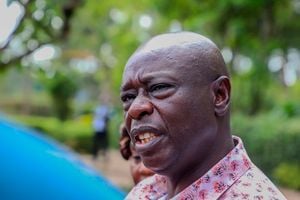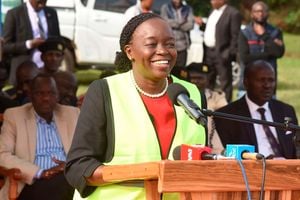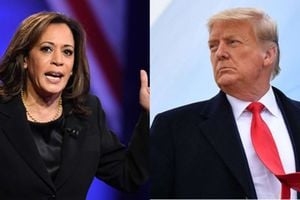
The United Nations headquarters in New York.
African countries are renewing their case for a “special” consideration to have the UN Security Council reformed with their plight in mind.
It is not the first time they are making such a plea. Only that this time, they want the case they presented nearly 19 years ago to be reconsidered.
This week, a committee selected to steer Africa’s reform demands at the UN Security Council met in Algiers, Algeria, for the eleventh time. And they agreed to push for what is commonly known as the Common African Position (CAP) on the reform of the United Nations Security Council, which is usually declared in an African Union documents known as the Ezulwini Consensus and the Sirte Declaration.
This committee, known as C-10 comprises of Sierra Leone, Algeria, Kenya, Uganda, Namibia, Sierra Leone, Libya, Equatorial Guinea, Senegal, Zambia, the Republic of Congo, and Algeria.
“African Union Member States should call for a reform of the UN Security Council, with Africa treated as a special case and priority in their respective national statements, at the 79th Session of the UNGA high-level week, and in the Summit of the Future in September 2024,” they said in an Outcome Document after their meeting on Monday. World leaders are expected to gather on sidelines of the UN General Assembly in September in New York to discuss the ‘future of the UN system under what is dubbed as the Summit of the Future.
The Common African Position on the UNSC Reform was first adopted by the AU Member States in 2005. It calls for allocating two seats in the permanent category “with all its prerogatives and privileges including the right of veto, and two additional seats in the non-permanent category” of the Security Council. If those reforms are agreed to, it could mean Africa’s seats on the Council could rise to five from the current three non-permanent.
Bankole Adeoye, the African Union Commissioner for Political –Affairs, Peace and Security argues Africa’s the quest for the UN Security Council Reform “is a legitimate demand”, especially since the UN Security Council has made over 60 percent of its decisions in the last ten years on African political situations.
“It is impossible to disassociate it (the quest for reform) from peace operations, largely concentrated on the continent and implemented by the UN Security Council. During recent decades, Africa has been the main topic dealt with by the UNSC,” he said.
But African Ministers of the C-10 agree that divisions, distractions and competing proposals have made their quest to nearly stall. Kenya’s Prime Cabinet Secretary and Cabinet Secretary for Foreign and Diaspora Affairs says every country in Africa and beyond now sees the need for reforms, given the “rapidly evolving international security realities.”
“On one hand, we see a notable convergence among member states on the fundamental need for reform including a broad-based recognition that the current structure of the Security Council does not adequately reflect the geopolitical realities of the 21st century,” he said, indicating that reforms could cure “historical injustice with regard to the representation of Africa and invariably that of underrepresented regions.”
However, he admitted that the “the complex interplay of national and regional interests militates against a much-needed consensus” even among African member states, and it is hurting the wider negotiations within the UN system.
“As a region, we must unite; we must be ready and we must be open to pragmatically and strategically consider all approaches, as long as they do not compromise on the central tenets of the Common African Position,” he said on Monday.
The Outcome Document suggested that the Common African position should be the only proposal from African countries, indicating there had been an attempt to vary or trade in what should be inserted in the reforms.
“The CAP should be reaffirmed as the only current viable option to correct the historical injustice done to the African Continent and for Africa to be treated as a special case and priority in the reform process,” it said.
The UN security Council is the most powerful organ of the UN with 15 members. Its substantive decisions are binding on members. But those decisions often require the support of the five permanent members (P5): UK, US, Russia China and France. These countries earned veto powers in 1945 when the UN was formed because they had either emerged victorious from the WWII, had strong economies or had a large population.
Critics of this arrangement today argue that there are stronger economies such as India, Japan, Germany and Brazil who could qualify to sit on the Council with veto powers by virtue of their economies or population sizes. Critics also charge that the P5 have abused their veto by often limiting decisions that hurt their national interest and delaying action that can save populations in times of conflict.
To change that structure however, the P5 must agree, which makes it a vicious debate. Africa first demanded reform in 2005 although other countries around the world had been pushing for changes before then.
The C-10 ministers said they will “explore means to enhance the cohesiveness and unity of the African Union Member States on the reform of the UNSC” and provide general guidance on substantive and procedural issues.









